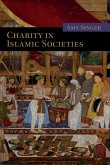This book attempts to explain how and why Ayatollah Khomeini was able to lead the Iranian people in their successful revolution against the Shah of Iran. Bringing together the sociological study of charisma by the sociologist Max Weber and the critical psychology of Erich Fromm, especially his analysis of the "prophet" and "priest," Byrd develops a theory of "prophetic charisma," which attempts to explain how Khomeini's thoughts and actions made him uniquely qualified to guide Iran from under the Shah's dictatorship. He pays close attention to the importance of authority, and how Khomeini's authority to lead the revolution is tied with the charismatic authority that began with the prophet Muhammad. Furthermore, Byrd concentrates on the relationship between Khomeini and the political Marxist-Leninists movements and groups in Iran at the time of the revolution. The book demonstrates how his "Islamization" of leftist language helped infuse a radical Islamo-Marxist critique of the Shah into the Iranian masses. Byrd shows how Khomeini not only benefited from the Left's activities in Iran but also how their critical analysis of the Iranian situation influenced Khomeini's own thoughts and language.








